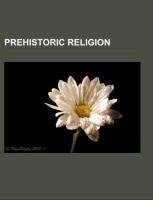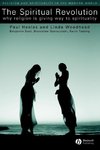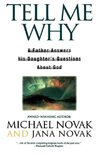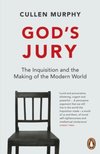
-
 Anglický jazyk
Anglický jazyk
Prehistoric religion
Autor: Source: Wikipedia
Source: Wikipedia. Pages: 31. Chapters: Evolutionary origin of religions, Matriarchy, Minoan religion, Mother goddess, Paleolithic religion, Religion and ritual of the Cucuteni-Trypillian culture, Urreligion. Excerpt: Matriarchy is a society in which females,... Viac o knihe
Na objednávku, dodanie 2-4 týždne
14.78 €
bežná cena: 16.80 €
O knihe
Source: Wikipedia. Pages: 31. Chapters: Evolutionary origin of religions, Matriarchy, Minoan religion, Mother goddess, Paleolithic religion, Religion and ritual of the Cucuteni-Trypillian culture, Urreligion. Excerpt: Matriarchy is a society in which females, especially mothers, have the central roles of political leadership, moral authority, and control of property. It is also sometimes called a gynarchy, a gynocracy, a gynecocracy, or a gynocentric society. The term for males is patriarchy, but, in feminist theory, it is not exactly a parallel term. Most anthropologists hold that there are no known societies that are unambiguously matriarchal, but possible exceptions include the Iroquois, in whose society mothers exercise central moral and political roles. According to Heide Goettner-Abendroth, this reluctance to accept the existence of matriarchies might be based on a specific, culturally biased notion of how to define matriarchy: because in a patriarchy 'men rule over women', a matriarchy has frequently been conceptualized as 'women ruling over men'. Goettner-Abendroth believed that matriarchies are egalitarian. There are also matrilinear, matrilocal, and avunculocal societies, especially among indigenous peoples of the Americas, Asia, and Africa, such as those of the Minangkabau, E De (Rhade), Mosuo, Berbers and Tuareg and, in Europe, e.g., traditionally among Sardinian people. Strongly matrilocal societies sometimes are referred to as matrifocal, and there is some debate concerning the terminological delineation between matrifocality and matriarchy. Even in patriarchical systems of male-preference primogeniture, there may occasionally be queens regnant. In 19th century Western scholarship, the hypothesis of matriarchy representing an early stage of human development-now mostly lost in prehistory, with the exception of some so-called primitive societies-enjoyed popularity. The hypothesis survived into the 20th century and was notably advanced in the context of feminism and especially second wave feminism, but this hypothesis of matriarchy as having been an early stage of human development is mostly discredited today, most experts saying that it never existed. Barbara Love an
- Vydavateľstvo: Books LLC, Reference Series
- Rok vydania: 2017
- Formát: Paperback
- Rozmer: 246 x 189 mm
- Jazyk: Anglický jazyk
- ISBN: 9781233094301












